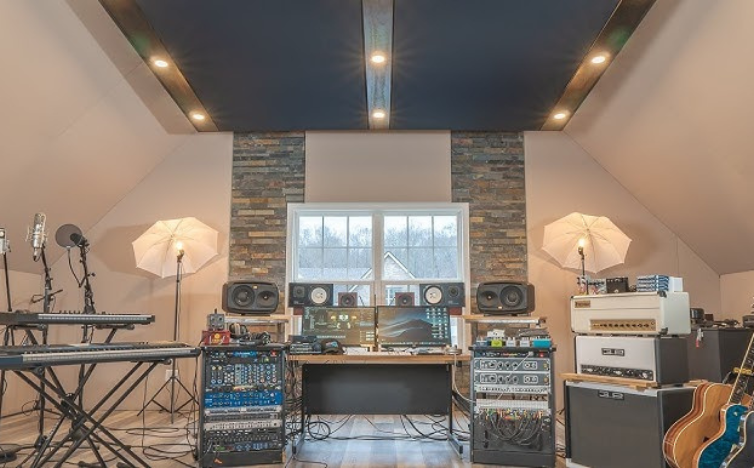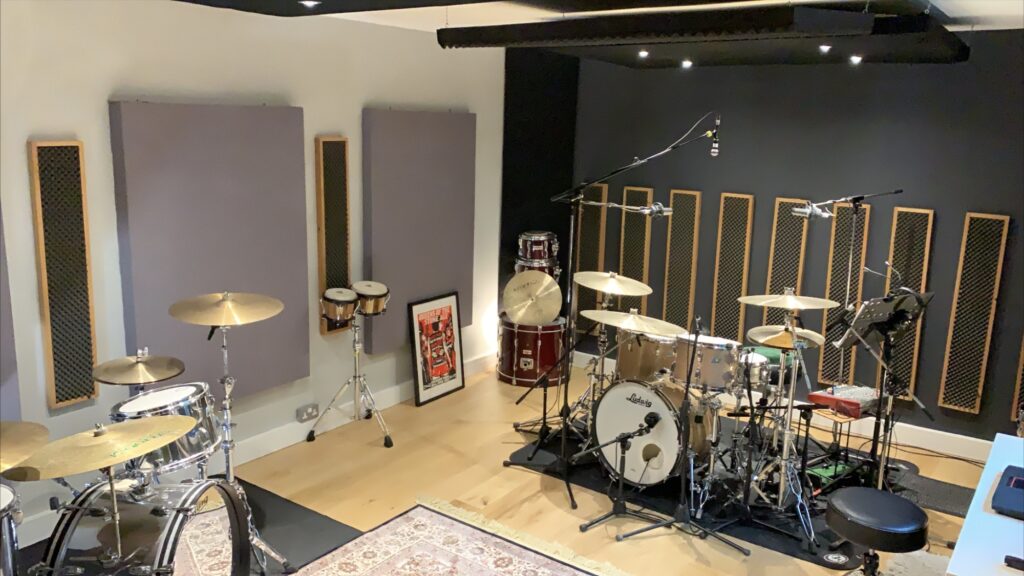When discussing sound control, “soundproofing” and “acoustic treatment” are often confused. While both enhance audio quality and manage noise, they serve distinct purposes. This article explores their differences, applications, and how to choose the right solution for your needs.
What Is Soundproofing?
Soundproofing aims to block sound from entering or leaving a space. Its primary goal is to create a barrier between the room and external noise sources.
Techniques Used in Soundproofing
- Mass and Density: Materials like mass loaded vinyl (MLV) or dense drywall add weight to walls, ceilings, and floors.
- Decoupling: Techniques like double walls or resilient channels reduce vibrations.
- Sealing Gaps: Acoustic caulking and door sweeps eliminate sound leaks.
Ideal Applications
Soundproofing is crucial in spaces like:
- Recording studios to prevent external noise from affecting recordings.
- Bedrooms or home offices for peace and privacy.
- Apartments to avoid disturbing neighbors.
What Is Acoustic Treatment?
Acoustic treatment improves the sound quality within a room. Instead of blocking sound, it manages how sound behaves by absorbing or diffusing it.

Techniques Used in Acoustic Treatment
- Absorption: Panels, bass traps, and foam absorb sound waves, reducing echoes and reverberations.
- Diffusion: Diffusers scatter sound waves to maintain a natural ambiance.
Ideal Applications
Acoustic treatment enhances sound in environments such as:
- Podcast studios to reduce echoes during recordings.
- Home theaters for clear dialogue and immersive audio.
- Concert halls to balance sound throughout the space.
Key Differences Between Soundproofing and Acoustic Treatment
Objective
- Soundproofing: Prevents sound from entering or exiting a space.
- Acoustic Treatment: Optimizes the sound environment inside a room.
Materials
- Soundproofing: Dense materials like MLV, acoustic glass, or heavy drywall.
- Acoustic Treatment: Lightweight materials like foam, fabric panels, and diffusers.
Cost and Complexity
- Soundproofing: Typically more expensive and labor-intensive due to construction modifications.
- Acoustic Treatment: Affordable and easier to implement with modular panels.
Do You Need Soundproofing or Acoustic Treatment?
Choosing between soundproofing and acoustic treatment depends on your goals:
- Choose Soundproofing If: You want to block external noise or prevent sound leakage.
- Choose Acoustic Treatment If: You aim to enhance the clarity and quality of sound within the space.
Combining Soundproofing and Acoustic Treatment
In some cases, a combination of both is necessary. For instance:
- A recording studio requires soundproofing to block external noise and acoustic treatment for clear audio recordings.
- A restaurant may benefit from soundproofing for privacy and acoustic treatment for a pleasant dining experience.
Call us: Contact Waseem Technical Soundproofing Expert in Dubai For Soundproofing: +971 50 209 7517
Conclusion
Soundproofing and acoustic treatment are distinct yet complementary techniques in sound management. Understanding their differences ensures you select the right solution for your specific needs, whether it’s blocking noise or enhancing audio clarity.




